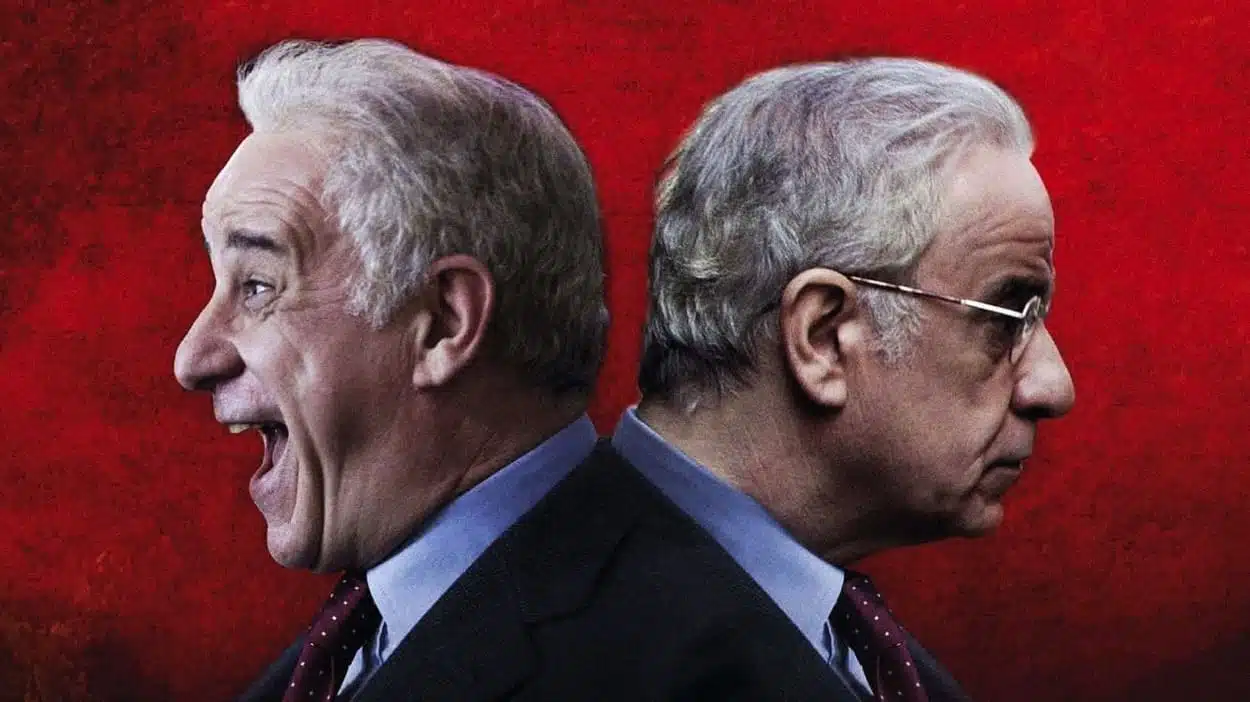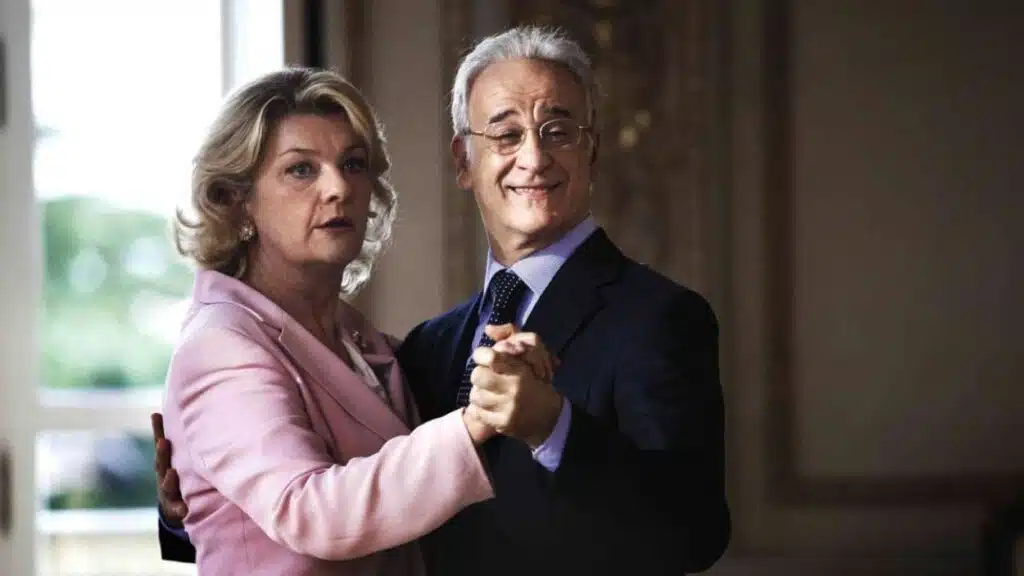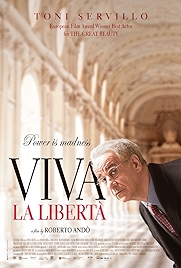There aren’t many films about passion in politics, the oeuvre of Leni Riefenstahl to one side. But that’s what you get in writer/director Roberto Andò’s Viva la libertà (Long Live Freedom), the tale of a political party re-energised by an injection of vigour at the top.
For vigour read madness. The great Toni Servillo plays two roles. In one he’s the lacklustre leader of an Italian political party who, having been badly heckled at a meeting, does a bunk one night and winds up hiding out in Paris at the home of an old flame.
While Enrico hunkers down – eventually finding a gig working incognito on a film set – the party machinery back home wheels into action. As a desperate stopgap they draft in Enrico’s identical twin, Giovanni (also Servillo), to hold the fort, a professor recently released from an asylum who gets through his days by popping antipsychotics.
If Enrico was a dull journeyman who had ended up in the spotlight largely against his will, Giovanni is a natural if slightly unhinged performer who basks in it. The antithesis of Enrico, he’s much given to talking off the top of his head, abusing journalists and answering their questions with quotations from philosophers or with impenetrably gnomic remarks.
Predictably, and highly enjoyably, the new party leader, veering wildly off message the entire time, is a massive success with both the party and the public. When a lady chancellor (clearly meant to be Angela Merkel) comes on a state visit, he has soon got her out of her shoes and dancing the tango with him around his office. This new “Enrico” is everything the old one wasn’t. The party’s opinion ratings start to get off the floor. Perhaps they even have a shot at winning the upcoming election.
But what if the old Enrico comes back?
Long Live Freedom was made in 2013 and it has a particular relevance to Italian politics at the time. In 2011 machinations at the EU level had led to the dismissal of the centre-right Italian prime minister Silvio Berlusconi and his replacement with an academic economist, Mario Monti, who in turn appointed a government of unelected technocrats.
The read-across is not entirely direct – the film is about a party of the centre-left for starters and is on the side of the replacement, not the man replaced – but it’s fuelled by a general dissatisfaction with managerial politicians, and more broadly by the retreat from democracy brought about by the “market solutions” answer to every question in the neoliberal era.
All done with the lightest of touches. Think Hugh Grant as the PM in Love Actually, dancing through Number 10 Downing Street, crossed with Chauncey Gardner, the idiot taken for a political savant in Hal Ashby’s Being There.
Two doses of Toni Servillo is enough to make any film watchable but there’s a great cast around him. Valerio Mastandrea as the PM’s agitated fixer, Valeria Bruni Tedeschi as the old flame in Paris who shelters Enrico, Judith Davis as a technician on the film set who brightens up Enrico’s life by taking him to bed.
Enrico’s arc is personal, Giovanni’s political. One reboots his flagging joie de vivre, the other the entire body politic of his country. This, inevitably, makes Enrico’s journey less interesting than Giovanni’s. After all, stories about men getting their mojo back are ten a penny, ones about the importance of passion in politics less so.
2013 was a good year for Servillo, who also appeared in Paolo Sorrentino’s masterpiece The Great Beauty that year. Long Live Freedom can’t really stand the comparison, but it has something about it, and Andò’s film functions in a way as a companion piece to Sorrentino’s much more sober grand political epic Il Divo and his later biopic about Berlusconi, Loro, both of which also starred Servillo. But then, as a rule of thumb, anything with Servillo in it is worth a look.
Viva la libertà aka Long Live Freedom – Watch it/buy it at Amazon
I am an Amazon affiliate
© Steve Morrissey 2023


